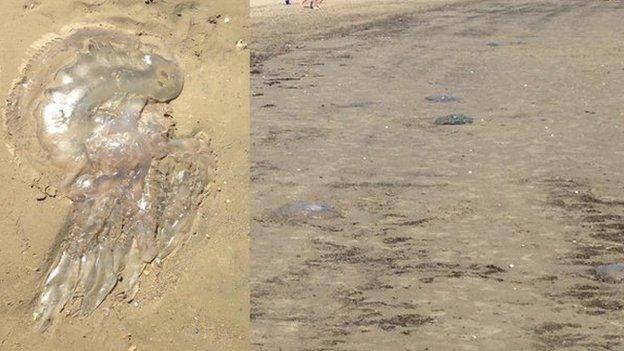Thousands of jellyfish wash up on Cornish beach
- Published
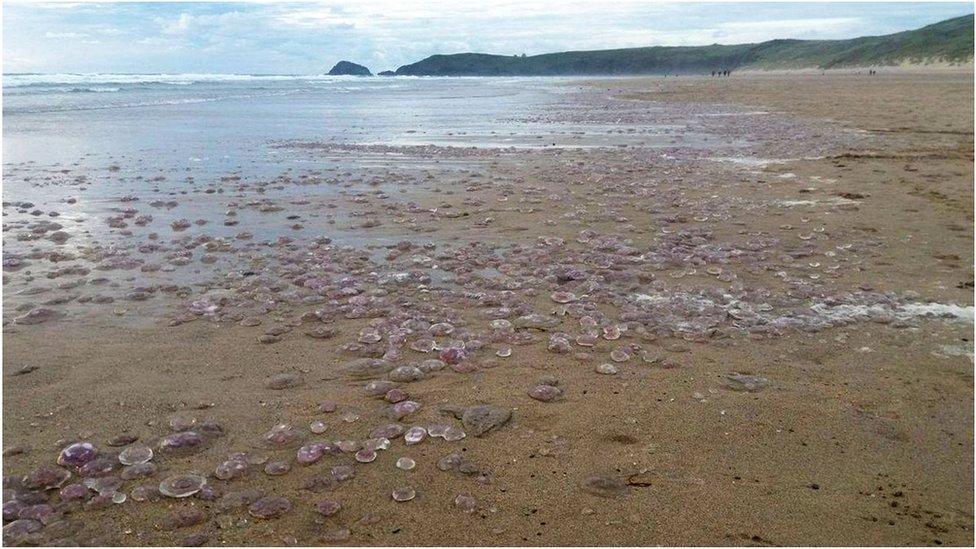
Thousands of jellyfish washed up on Perranporth beach
Thousands of jellyfish have been washed up on a Cornish beach just days after a sperm whale got stranded and died at the same place.
Marine specialists say the current onshore winds are bringing in large numbers of jellyfish from the Atlantic.
The jellyfish, known as moon jellies, which used to be rare in Cornish waters, do not have a painful sting.
On Sunday, a female sperm whale was discovered in the shallows on Perranporth beach.
More on the stranded jellyfish, plus more Devon and Cornwall news
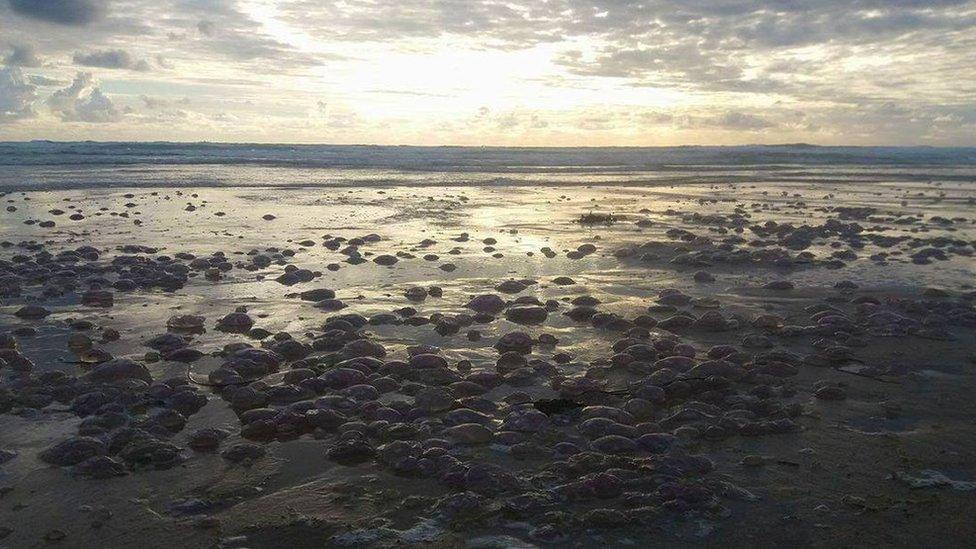
Moon jellies washed up on Perranporth beach
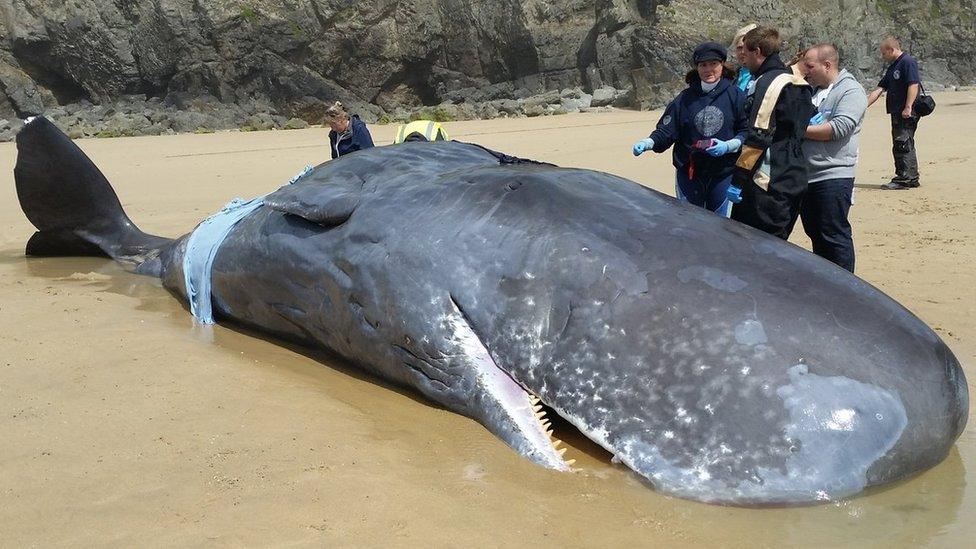
The sperm whale was discovered on its side at Perranporth beach on Sunday
Matt Slater, from the Cornwall Wildlife Trust, external, said: "It's shocking the amount of jellyfish which are turning up.
"There are millions of jellyfish in our waters at this time of year. When I'm out surfing, I keep hitting them with my board."
He added moon jellies were rare in Cornish waters five years ago, but they now seem to be abundant at this time of year.
There could soon be sightings of leatherback turtles - the largest turtles in the world - as these feed on jellyfish, he said.
Christian McConville, from the Plymouth Marine Laboratory,, external said: "Jellyfish do not have a tremendous amount of control over movement.
"It's likely the prevailing wind drew them to the coast and the tide left them on the beach."
He said this is the first major stranding event that he has seen this year.
- Published20 May 2014
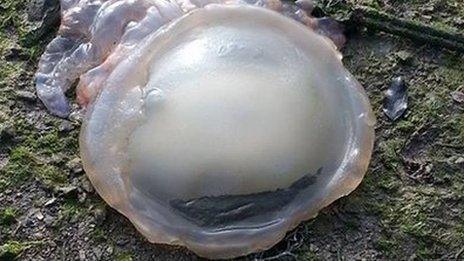
- Published27 June 2015
